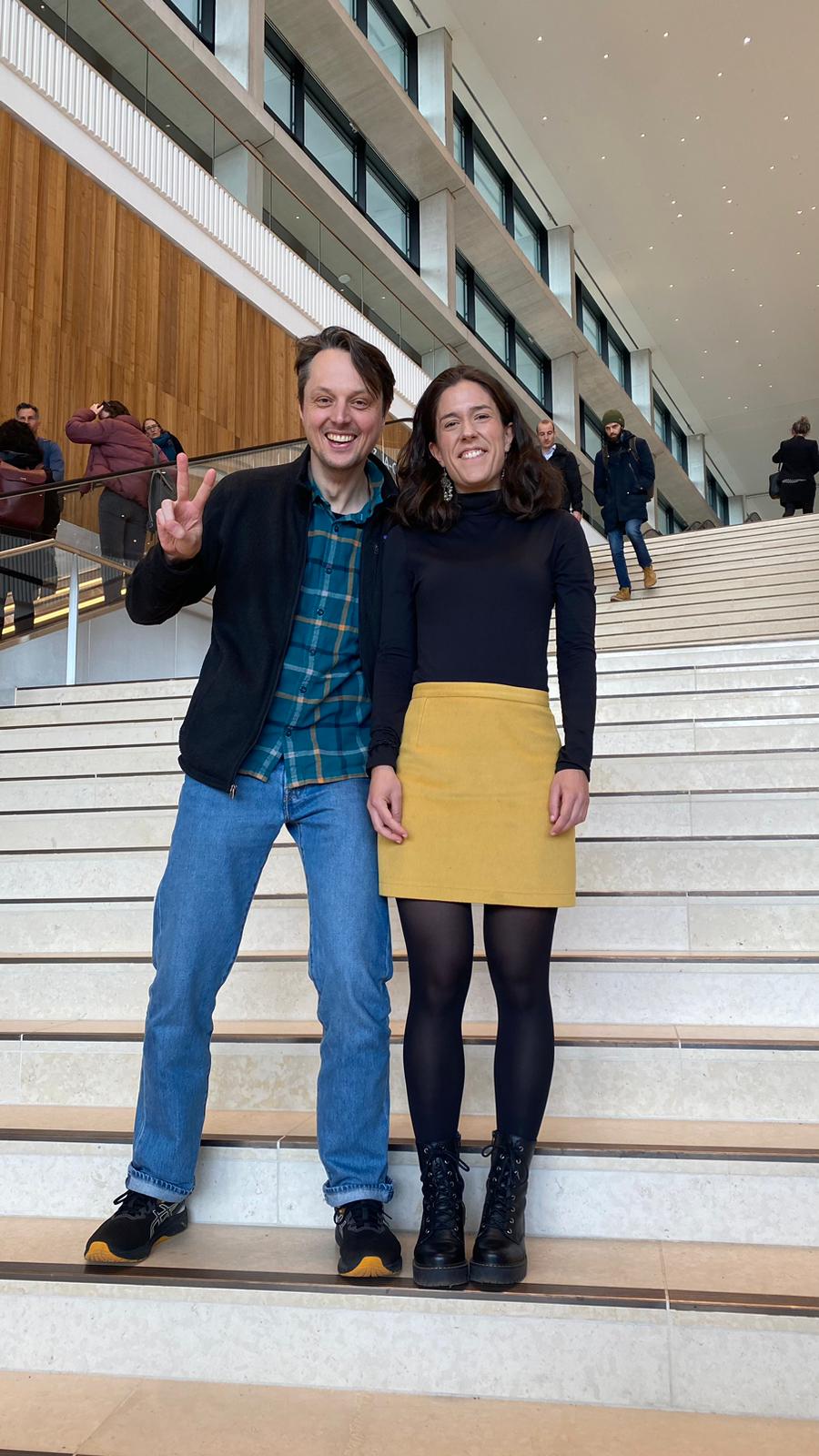IDE researchers receive Best Paper Awards at CHI 2023
PhD candidates at TU Delft’s Faculty of Industrial Design Engineering Mireia Yurrita and Kars Alfrink received a Best Paper Award at CHI 2023 in Hamburg.
PhD candidate Mireia Yurrita received a Best Paper Award at CHI 2023 for her paper titled: “Disentangling Fairness Perceptions in Algorithmic Decision-Making: the Effects of Explanations, Human Oversight, and Contestability.”
Recent research claims that information cues and system attributes of algorithmic decision-making processes affect decision subjects’ fairness perceptions. However, little is still known about how these factors interact. In this paper Mireia and her research partners investigate the interplay between explanations, human oversight, and contestability when shaping decision subjects’ fairness perceptions in algorithmic decision-making processes. They draw from literature in legal and organizational psychology in human decision-making and recent studies in fairness perceptions for algorithmic decision-making for designing a user study in the context of a loan approval scenario.
Mireia Yurrita is a member of the Knowledge and Intelligence Design group and the DCODE Network. As part of her PhD studies, Mireia explores design and engineering methods for developing algorithmic systems in a principled manner. Mireia is developing novel tools for shaping, testing and contesting machine behaviour based on approaches drawn from data science and HCI.
Read the full paper, co-authored by Tim Draws, Agathe Balayn, Dave Murray-Rust, Nava Tintarev and Alessandro Bozzon here.
PhD candidate Kars Alfrink also received a Best Paper Award at CHI 2023 for his paper titled: “Contestable Camera Cars: A Speculation Design Exploration of Public AI That is Open and Responsive to Dispute.”
Local governments increasingly use artificial intelligence (AI) for automated decision-making. Contestability, making systems responsive to dispute, is a way to ensure they respect human rights to autonomy and dignity. In this paper, Alfrink and his research partners investigate the design of public urban AI systems for contestability through the example of camera cars: human-driven vehicles equipped with image sensors.
Read the full paper, co-authored by Ianus Keller, Neelke Doorn, and Gerd Kortuem, here.


